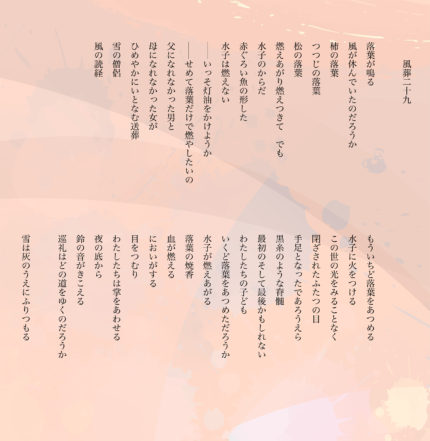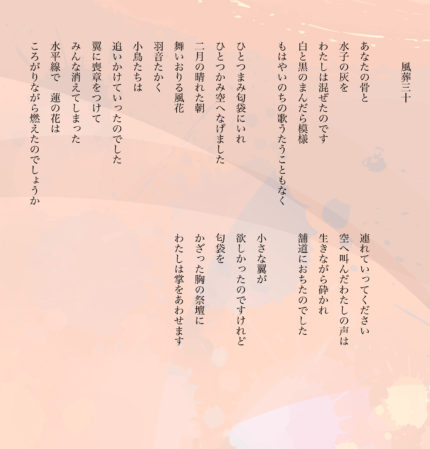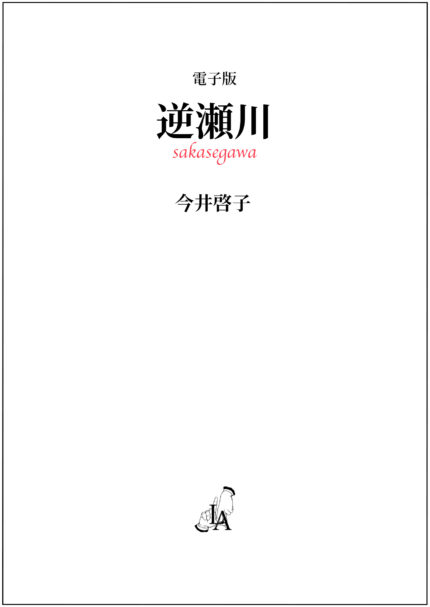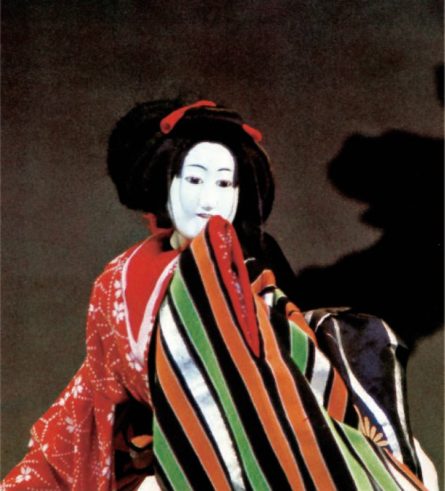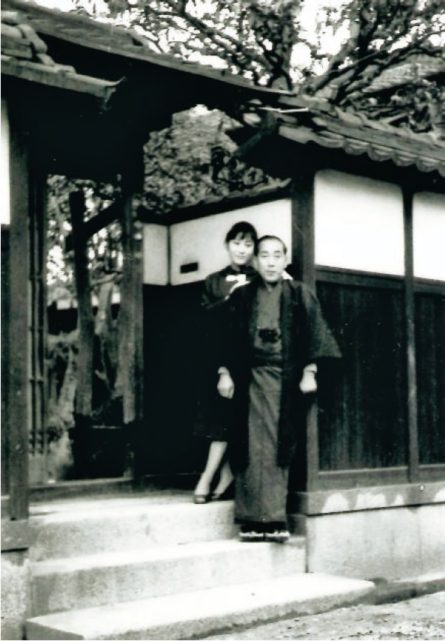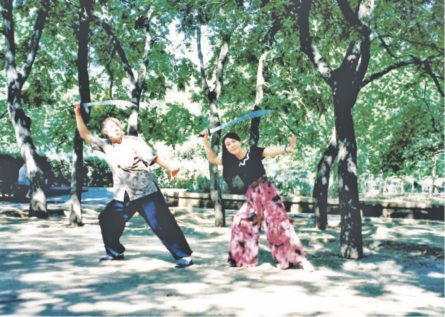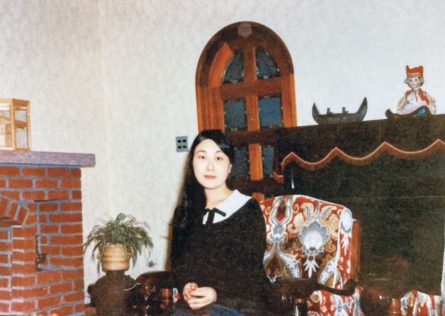- JEPAA Member
- Poet
- Keiko Imai
- 詩
- 今井啓子
© 2024 Keiko Imai.
SCROLL
Portfolio /作品一覧
- 風の翼が/The wings of the wind
- 風葬二十九/Wind Burial 29
- 風葬三十/Wind Burial 30
view more
Book/書籍
Solo Exhibition /個展
特設個展ブースin 日欧宮殿芸術祭2021
会期:2021年6月4日~6日
会場:シャルロッテンブルク宮殿(ドイツ・ベルリン)
主催:一般社団法人 日欧宮殿芸術協会
運営:クリエイト・アイエムエス株式会社
Special Exhibition Booth in JEPAA Festival 2021
Dates: June 4-6, 2021
Venue: Charlottenburg Palace, Berlin, Germany
Organizer: Japan-Europe Palace Art Association
Operated by: Create IMS Co.
Art History /アートヒストリー
今井啓子。『風葬』シリーズなど唯一無二の世界観を確立した詩人である。ここでは今井氏自ら筆を執り、自身の半生と創作の原点について語っていただいた。
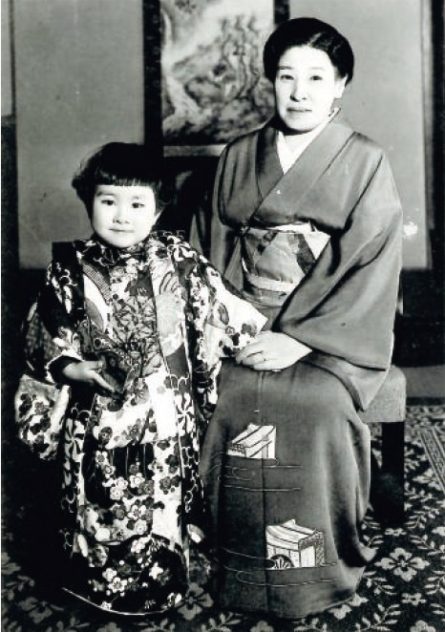
今井啓子(2才くらい)と祖母。厳しい両親と違って甘やかしてくれる祖母が大好きで「おばあちゃんっ子」でした。後年、祖母を看病出来たことは幸運でした。
「詩を書く上で影響を受けたこと」との御要望ですが、明白には分からないので、思い出すままに書くことにいたします。
まずクラシック音楽。父の趣味で生まれる前から母に聞かせていたとのこと。今も美空ひばりの歌以外はクラシックばかり聴いているのは、この影響でしょうか。
2歳くらいからでしょうか。毎晩眠る時、祖母が日本昔ばなしやアンデルセン童話、グリム童話、イソップ物語などを読み聞かせてくれました。
美しいもの、悲しいもの、恐ろしいもの、かなり鮮明に今も覚えております。
3歳からは母の趣味の宝塚歌劇と祖父母の趣味の文楽座へと連れて行ってもらい、訳も分からずに見ておりました。美意識ではかなり影響を受けたと思っております。宝塚歌劇は高校時代に卒業したのですが、文楽にはますます心を奪われております。近松門左衛門、井原西鶴を生んだ大阪の町人の中から生まれ育てられた文楽。ドナルド・キーンさんが
「人形芝居の最高峰」とお書きになったのを読んだことがありますが、その通りだと思われます。
小学校に入り、字を覚えるようになると、父の書斎に潜り込み、夢中で本を読むようになりました。マルクス・エンゲルス全集、これは難しくて分かるはずがなく、「不思議な本だ」と読むよりも眺めていた、という方が正確です。トルストイ全集、ドストエフスキー全集、シェイクスピア全集、夏目漱石全集。詩ではハイネと高村光太郎、宮沢賢治の詩。いずれも深い意味や本当の意味など分かるはずもなく、それでも自分の知らない世界へ入っていくワクワク感を感じておりました。詩ではハイネが、そして小説ではアンドレ・ジッドの『狭き門』がもっとも好きで、今も一番の愛読書です。
父は、娘が自分の書斎へ入り込んで本を読むのに反対で、「外で遊んで来い」とよく叱られておりました。外で友人たちと遊ぶのはもちろん好きでしたが、それ以上に読書へ惹かれていて、現在に至る活字中毒は父親譲りです。
小学生の時の宿題で、詩『山の子供たち』を書いたのですが、父に酷評されてしまいました。父に憧れていた私にとってこれはひどく応え、詩を書けなくなり、再び書くようになったのは大学院の院生になってからでした。
商社マンの家族として北京に駐在した時、気功と太極拳を習ったのですが、「空」と「無」の観念を、日本での坐禅修行中よりも、身体で感じることができ、それ以来、間とか余韻、背後に深い沈黙のある詩を書けたら…と考えるようになりました。まだ書けた…という自信はないのですが。
東京で出会った3人の先生方。絵と詩と声楽の先生方は稀に見る真の芸術家でした。
例えば絵画の鈴木満先生。先生のお宅で絵を習っていたのですが、奥様も洋画家でよくお話を伺いました。帝展や日展で特選を得ていた先生が「画壇は汚い」と辞めてしまい、土方をしながら絵を描いていらしたのですが、ある日画商が来て「全部の絵を買いたい」と言ったので、奥様は「あぁ、これでお米が買える」と喜んでいたら、次の朝、先生が「こんなものを売っては芸術的良心に反する」と全部燃やされたのに驚くと同時に「この人は絵を売る気が無いのだ。私が売れる絵を描こう」と思ったとおっしゃっていました。
世俗的な名利をかなぐり捨て自分の良心に忠実に生きられた先生。それは詩の先生、声学の先生とも共通したものでした。真の芸術家の凄まじくも美しい精神、それに触れることができましたこと、そして先生方と過ごした時間、それは今も私にとって宝物です。
さらに私の学生時代には不条理と生命がけで闘った友人たちがおりました。その志、その闘い、その全てが私の心の中に今も生き、深い所でそれに支えられていると感じております。
私の場合は、自己の良心に忠実に生きるにはあまりにも勇気が無く、あるべき自己と、現に在る自己との矛盾に引き裂かれて生きているが故に詩を書いていると思われます。
また、人間の罪と罰のことを知りたくて大学院で刑法を研究していたのですが、これは当然のことながら法律上の罪と罰の問題でした。私の知りたかったのは、もっと深い人間の実存的な罪と罰の問題でした。これは哲学の問題であり、宗教の問題であり、文学の問題なのでしょう。詩を書くことによってその核心に少しでも近づくことができれば。
詩を書いていると見知らぬ私に出会うことがあり、さらに優れた評論に出会うとさらに深いものに。これは新鮮な歓びです。
私は詩を書き上げた時に完成するのではなく、読者一人一人との共作なのではないかと。それ故、読んで下さった方の批評を大切にしております。
これからも素敵な出会いを!
Introduction
Keiko Imai. A poet who creates from a world- view parallel to none, with works such as the Fuso (aerial burial) series. Here, Ms.Imai was kind enough to take the time to write about her life up to now and the origin of her creative process.
I was asked about “my influences in writing poetry,” but since it is not so clear to me, I will just write as I recall. First, classical music. It was my father’s hobby, and he apparently played it to my mother before I was born. I suppose this is the reason why I still listen only to classical music, except for MISORA Hibari’s songs. And then, maybe from about two years old… Every night before bed, my grandmother would read to me Japanese folktales, the Andersen fairy tales, the Grimm fairy tales, Aesop’s fables, etc. I still remember quite vividly the beautiful, the sad, and the terrible stories.
From the age of three, I would accompany my mother to the Takarazuka Revue (all-girls musical show), her hobby, and my grandfather and grandmother to Bunraku-za (puppetry art), his hobby, and watched these shows without really understanding anything. I believe these shows have influenced me a great deal in terms of aesthetics. I lost interest in Takarazuka Revue back in high school, but I am increasingly fascinated by Bunraku. Bunraku was born among and developed by the townspeople of Osaka, where CHIKAMATSU Monzaemon and IHARA Saikaku originated from. Donald Keene once wrote that it is “the epitome of puppet theater,” and I believe he is right.
After I enrolled in elementary school and learned to read, I would sneak into my father’s study and devour books. The Marx/Engels Collected Works were far too difficult for me to understand, so it was more that I marveled at the strange books instead of actually reading them. The complete works of Tolstoy, the complete works of Dostoevsky, the complete works of Shakespeare, the complete works of NATSUME Soseki. In poetry, Heine, TAKAMURA Kotaro and MIYAZAWA Kenji. There was no way I could understand the deeper meaning or the true significance of any of them, but I still enjoyed the thrill of entering a new world I did not know. Heine is my favorite poet, and The Narrow Gate by André Gide was, and still is, my favorite novel. My father was opposed to his daughter reading books in his study, and often scolded me, telling me to go outside and play. I of course loved to play outside with friends, but I was even more drawn to reading. I inherited my father’s addiction to the printed word, which continues to this day. I once wrote a poem titled Children of the Mountain for homework in elementary school, and my father criticized it very harshly. This was a terrible blow to me, because I admired my father. From then on, I could no longer write poetry, and did not start writing again until I was in graduate school.
My father worked for a trading company, and due to his job, my family lived in Beijing for a while. I learned qigong and tai chi there, and realized that I could physically feel the ideas of “emptiness” and “nothingness” much more than during my zazen practice in Japan. Ever since then, I have been trying to write poetry with pauses, lingering thoughts and profound silence behind it. However, I am still not sure I have managed to write such poetry…yet.
I met three teachers in Tokyo. These teachers of painting, poetry and voice had rare, the true artist. For example, SUZUKI Mitsuru sensei was my painting teacher. I was learning to paint at his house, and his wife, who is also a Western-style painter, shared a lot of story with me. My teacher was winning awards at the Japan Fine Arts Exhibition, the Imperial Art Exhibition, etc. but one day, he quit, saying “the art world is corrupt.”
He continued painting while working as a construction laborer, when one day, an art dealer came by and said, “I want to buy all the paintings.” This made her happy, because she thought she can afford to buy rice. But the next morning, my teacher said, “Selling such things goes against my artistic conscience” and burned every piece. She was shocked, but at the same time, thought “He has no intentions of making money with his paintings. Then I will paint pieces that I can sell.” My teacher lived true to his own conscience, casting aside worldly fame and gain. This was also true of my teachers of poetry and voice. I still treasure the time I spent with them, having the opportunity to be close to the fierce yet beautiful spirit of true artists. Furthermore, I had school friends who fought absurdity with their lives. All of their aspirations and struggles still live on in my heart, and deep down, I feel supported by them.
In my case, I lack courage to live true to my conscience, and I think I write poetry because I am torn by the contradiction between the self that I should be and the self that I am.
I also studied criminal law in graduate school because I wanted to learn about human crime and punishment, which was, of course, regarding crime and punishment as stipulated by laws. What I actually wanted to learn was the deeper, existential ideas of human crime and punishment. I suppose this is a matter of philosophy, of religion, and of literature. If only I could, through poetry, draw nearer to the essence of it all…
Writing poetry can bring about an encounter with an unseen self. And poetry is deepened by excellent criticism. This is a fresh delight. I do not finish the poem, but instead, maybe co-create it with each reader. So naturally, I value the critiques of those who read my work. I look forward to more future wonderful encounters!
Profile /経歴
今井啓子 Keiko Imai
大阪市出身
一橋大学大学院法学研究科修士課程修了
作品出展国遍歴(JEPAA関連事業):ドイツ、フランス、マルタ、カナダ他
Born: Osaka, Japan
Education: Captains of Dispute Resolution HITOTSUBASHI University Graduate School of Law, Osaka
Exhibition of Works(JEPAA): Germany, France, Malta, Canada…


